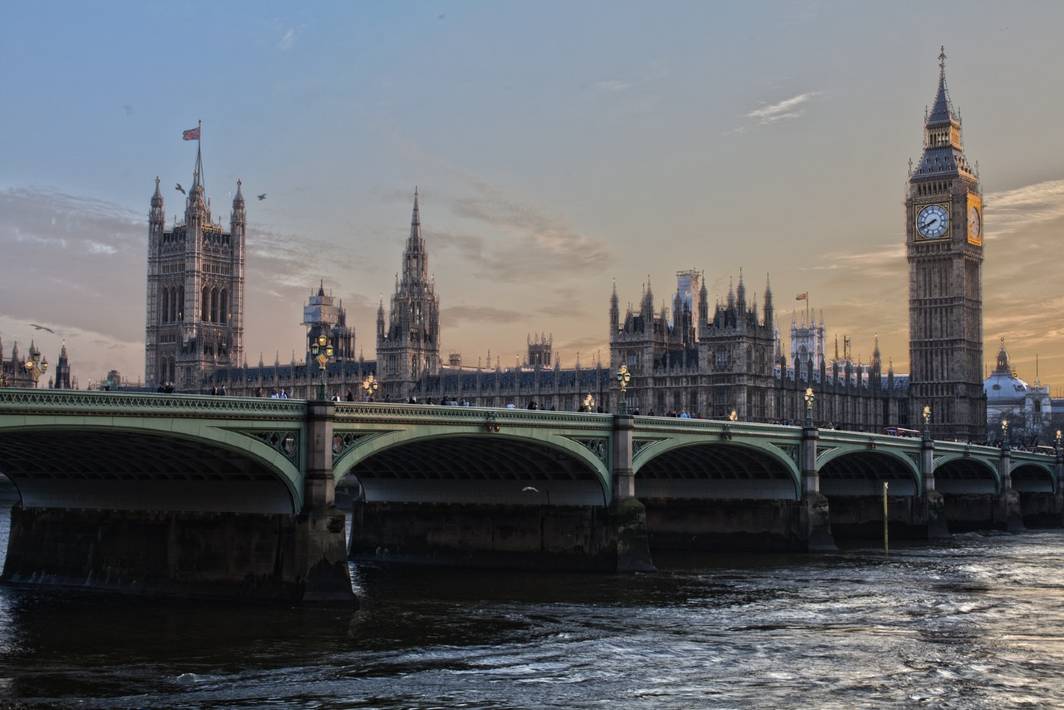Election roundup: we compare the parties’ manifesto promises on carbon, energy and the climate.
With just a couple of days to go until the election, most of us are suffering from information (and misinformation) overload. It’s hard to work out which party has the most credible strategy to tackle the climate crisis when we’re getting a barrage of conflicting claims from news reports, party leaflets, social media and canvassers. We’ve done the hard work for you, wading through the manifestos of eight UK political parties to give you a side-by-side comparison of where they stand on the different aspects of climate change policy.
Climate targets
What are the parties’ targets for reducing greenhouse gas emissions?
| Brexit Party |
No mention of any targets. |
| Conservative |
Net zero by 2050. |
| Green |
Net zero by 2030. |
| Labour |
Majority of emissions reductions by 2030. |
| Liberal Democrat |
Net zero by 2045 “at the latest”. |
| Plaid Cymru |
Net zero by 2030. |
| SNP |
Net zero of all emissions by 2045. Net zero in carbon alone by 2040. |
| UKIP |
No carbon reduction targets. Would scrap the Climate Change Act (2008) which currently commits the UK to net zero by 2050, and take the UK out of the Paris Climate Agreement. |
Energy transition
What are the parties’ goals for the transition to renewable energy sources?
| Brexit Party |
No mention of any targets. |
| Conservative |
Increasing the offshore wind target to 40 gigawatts by 2030, and in general, “increasing our commitment to renewables”. |
| Green |
70% of energy from wind by 2030, with “most of the rest” from other renewable sources. |
| Labour |
90% of electricity and 50% of heat from renewable and low-carbon sources by 2030. |
| Liberal Democrat |
80% of electricity from renewable sources by 2030. End fossil fuel subsidies by 2025. |
| Plaid Cymru |
Make Wales 100% self-sufficient in renewable energy by 2030. |
| SNP |
Scotland already gets 75% of its electricity from renewable sources. The SNP pledges to heat every home with renewable or low carbon energy by 2024. |
| UKIP |
“We will support renewable energy where it can deliver electricity at competitive prices,” but no actual targets. |
Renewables investment
How are the different parties going to invest in renewable energy sources?
| Brexit Party |
- No mention of spending on renewables.
|
| Conservative |
- “We will enable new floating wind farms.” No spending figures given.
|
| Green |
- “Introduce new support and incentives to directly accelerate wind energy development” and “introduce new support for solar, geothermal, tidal, hydro and other renewable energies.” No spending figures given.
|
| Labour |
- 7,000 new offshore wind turbines, 2,000 new onshore wind turbines, “enough solar panels to cover 22,000 football pitches”, new nuclear and expansion of tidal energy. No spending figures given.
|
| Liberal Democrat |
- £12 billion invested over five years to decarbonise the energy sector. Investment in tide and wave power, solar panels on all new homes, investment in tech such as smart grids.
|
| Plaid Cymru |
- Creating a “Welsh Energy Atlas” to find the most ecologically sustainable sites for renewable energy generation. Have already identified specific sites for projects, such as tidal lagoons for Swansea Bay, Cardiff and Colwyn Bay and an offshore windfarm off Anglesey.
- Will change planning rules to make it easier for community-run renewables projects to go ahead. No spending figures given.
|
| SNP |
- Investing over £10 million on marine and tidal innovation. (Scotland alone accounts for a quarter of Europe’s tidal energy resources.)
|
| UKIP |
- No mention of spending on renewables.
|
Domestic energy use
What are the different parties’ policies on heating and lighting our homes?
| Brexit Party |
- Scrap VAT on domestic fuel, currently at 5%. (Under EU rules, it is already at the lowest possible rate, so could only be scrapped or lowered if the UK was out of the EU.)
|
| Conservative |
- Invest £9.2 billion in the energy efficiency of homes, schools and hospitals.
- Keep the winter fuel payment for pensioners.
|
| Green |
- Make the elimination of fuel poverty a national infrastructure priority.
- Build 100,000 new energy-efficient council homes a year.
- Retrofit 1 million existing homes each year with energy efficiency measures so that they reach an Energy Performance Certificate (EPC) rating of A or above. (10 million homes by 2030.)
- Implement a Minimum Energy Efficiency Standard Escalator for rented homes, to raise the EPC minimum allowed from the current rating of E to A or above by 2030.
|
| Labour |
- Introduce a zero-carbon homes standard for all new homes.
- Upgrade almost all the UK’s 27 million existing homes to the highest EPC rating.
|
| Liberal Democrat |
- £6 billion investment in home insulation and low-carbon heating over 5 years.
- End fuel poverty by 2025.
- Minimum energy efficiency standards for privately rented properties
- Low-income households to get free energy efficiency retrofits.
|
| Plaid Cymru |
- £5 billion Greener Homes programme to improve the energy efficiency of housing in Wales and reduce fuel poverty.
- Build 20,000 “green social homes” and ensure all new-build housing is insulated to the highest standards.
- All new housing will have solar water heating and photovoltaic panels to generate electricity.
- Press for welfare powers to be devolved, meaning that the Welsh Government would control winter fuel payments and cold weather payments.
|
| SNP |
- Tax incentives to make it more affordable to switch to low-carbon heating systems.
- From 2024, all new homes must use renewable or low-carbon heat.
- “Greener tax deal” for heating and energy efficiency improvements in homes.
|
| UKIP |
- Scrap VAT on domestic fuel. (As explained above, this is only possible once the UK has left the EU.)
|
Fossil fuels
According to last year’s report from the Intergovernmental Panel on Climate Change, there should be no new fossil-fuel investments and some existing fossil fuel projects will need to be closed before the end of their profitable lifetime. How does party policy reflect this reality?
| Brexit Party |
- No mention of fossil fuels.
|
| Conservative |
- “The oil and gas sector…has a long future ahead and a key role to play as we move to a net zero economy. We will support this transition in the next Parliament.”
- The Conservative government halted fracking in England in early November. The manifesto says that the Conservatives will not support fracking “unless the science shows categorically that it can be done safely”.
|
| Green |
- Prepare for the rapid decommissioning of North Sea oil rigs and the phasing out of the UK’s remaining coal plants and coal mines, also with a “transition” for workers currently in this industry.
- Introduce a Carbon Tax on all fossil fuel imports and domestic extraction as well as carbon-intensive manufacturing processes. This will increase progressively over a decade, eventually “rendering coal, oil and gas financially unviable”.
- Carbon Tax is intended to raise £76.7 billion (not including revenue from the farming sector).
- Ban fracking and “other unconventional forms of fossil fuel extraction”.
|
| Labour |
- Windfall tax on oil companies.
- Strategy “to safeguard the people, jobs and skills that depend on the offshore oil and gas industry”.
- Stop the Department for International Development spending any of its budget on fossil fuel production overseas.
- Ban fracking.
|
| Liberal Democrat |
- Implement the UK’s G7 pledge to end fossil fuel subsidies by 2025.
- Provide “Just Transition” funding for areas and communities negatively affected by the transition to net zero.
- Ban fracking.
|
| Plaid Cymru |
- Ban on fracking and new open-cast coal mines.
|
| SNP |
- Ring-fence oil and gas revenues, creating a Net Zero Fund which will be used to pay for investment in renewables, carbon capture etc.
- 12% of the new fund (about £1 billion over 5 years) will go to a Net Zero Industrial Strategy to help diversify the economies of oil hubs.
- Press the UK to accelerate action on decarbonising the gas grid.
- The SNP-led Scottish Parliament has already banned fracking in Scotland. Other “unconventional forms of extraction” are also banned.
|
| UKIP |
Policies all aimed at increasing fossil fuel use, including:
- Bring more gas power stations online.
- Some former coal power stations have been converted to burn wood pellets, or “biomass”. Biomass is classified as carbon neutral because the trees that make the wood absorb carbon as they grow, but this is the subject of fierce debate. UKIP would re-convert biomass power stations back to coal.
- Explore the viability of fracking, but oppose it in cases where water sources might be at risk or where a majority of residents have voted against it.
|













